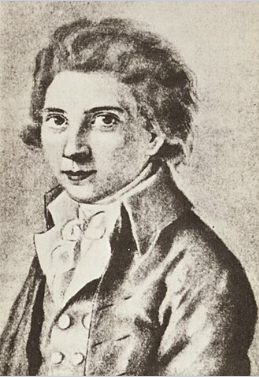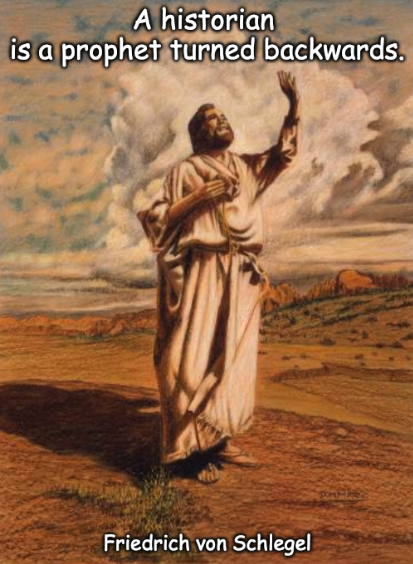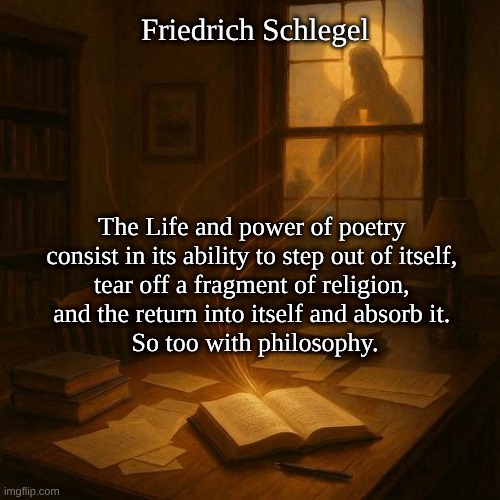Karl Wilhelm Friedrich (von) Schlegel:
(Hannover, March 10, 1772 – Dresden, January 12, 1829).
German literary figure, literary theorist, art critic, poet, philosopher, and translator. He is considered one of the pioneers of comparative linguistics. By writing and publishing fragments, Schlegel attempted to build a philosophical encyclopedia.[1] Schlegel gave German Romanticism, a term that only came into use around 1810, a political foundation in response to the growing influence of France and Napoleon Bonaparte. Towards the end of his life, he was a defender of the Catholic heritage of the Middle Ages.

A historian is a prophet turned backwards.

The Life and power of poetry consist in its ability to step out of itself, tear off a fragment of religion, and the return into itself and absorb it. So too with philosophy.
